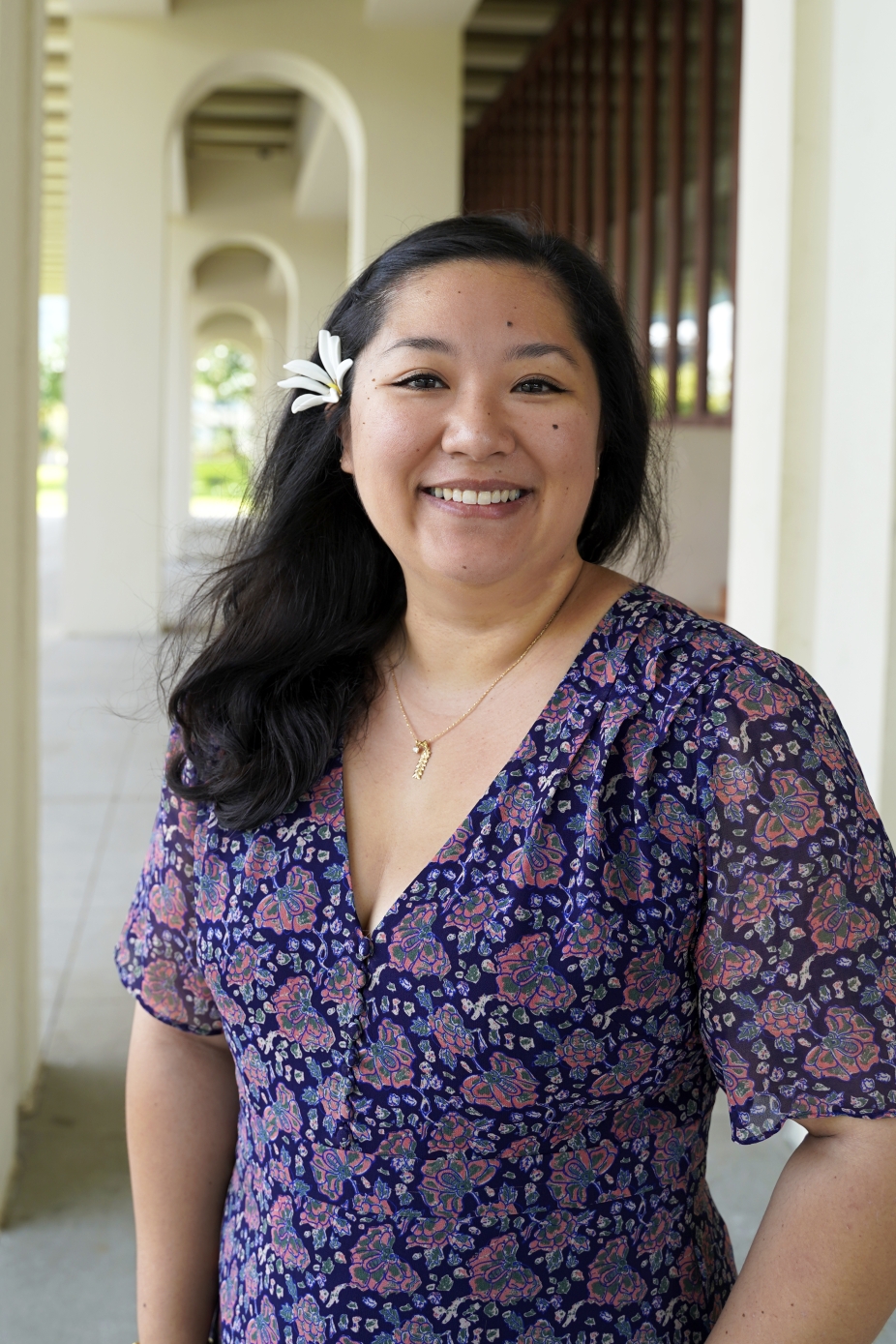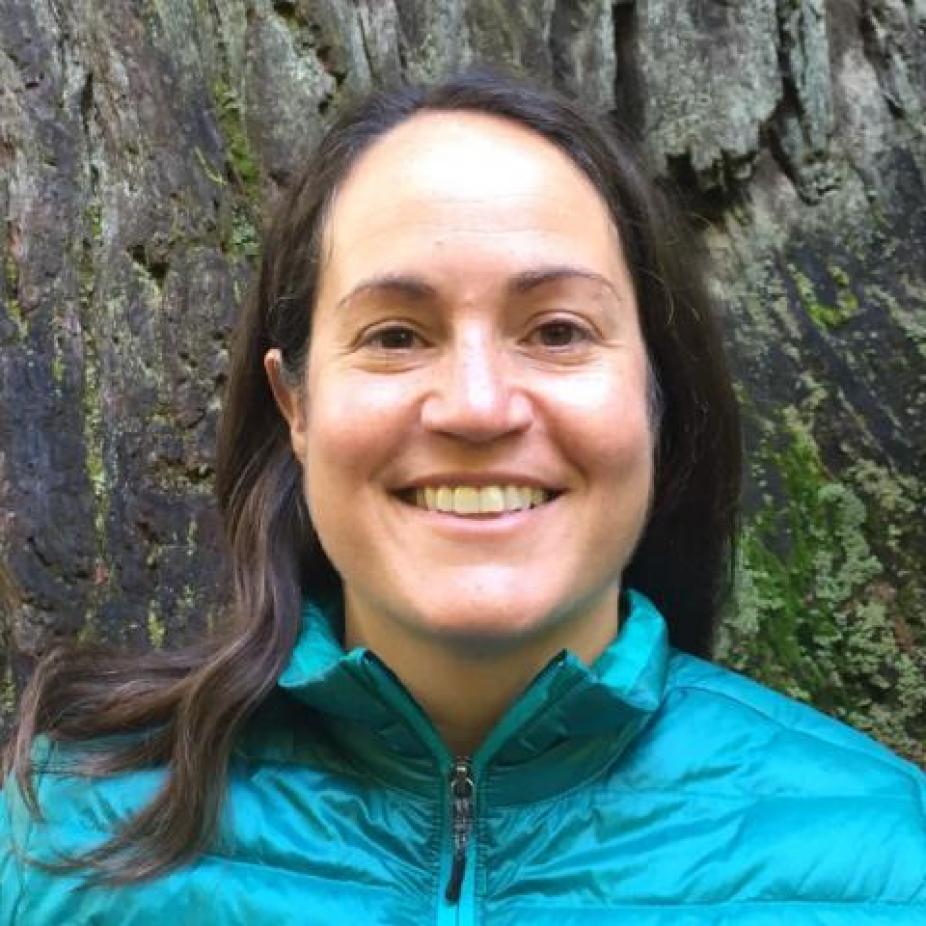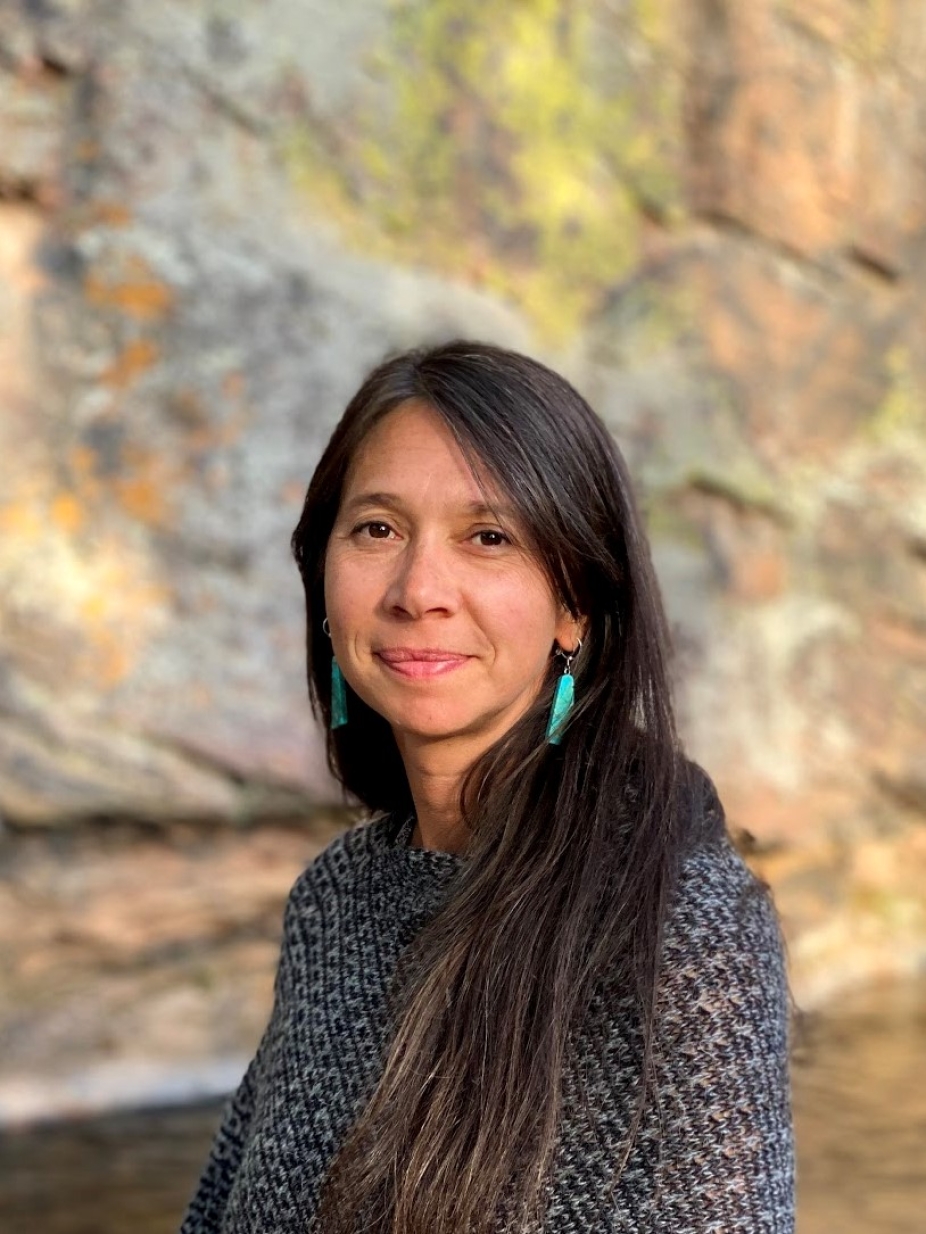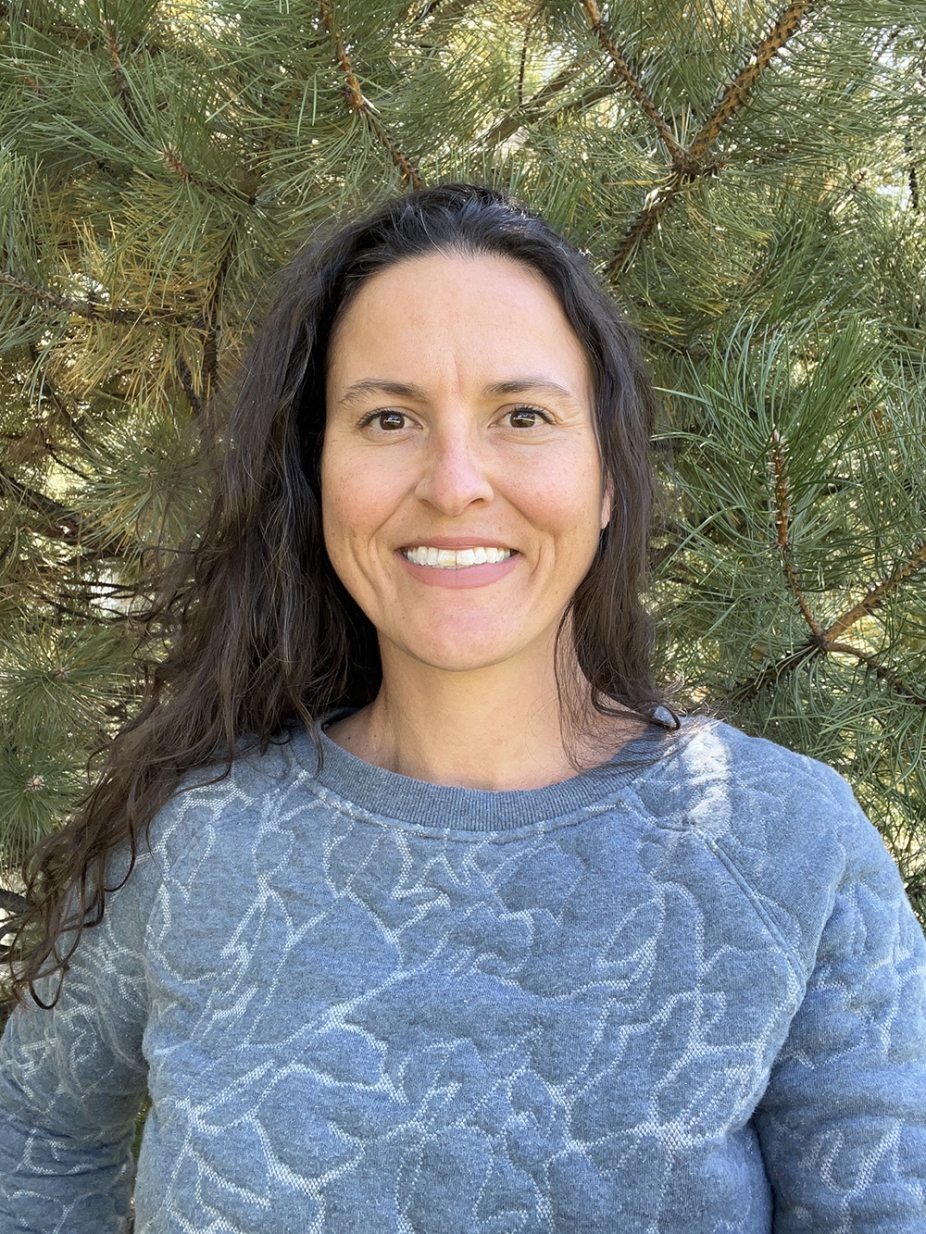People
The network of people engaged in Rising Voices is comprised of Indigenous and other scientific professionals. Together, we are dedicated to advancing scientific excellence by weaving Indigenous science, knowledge systems, and wisdom with university- and research center-based research. In doing so, we demonstrate the value and contributions of all of these systems to effective climate change research and actions.
Co-management partnerships
Rising Voices is co-administered by the U.S. National Science Foundation National Center for Atmospheric Research (NSF NCAR), the University Corporation for Atmospheric Research (UCAR), and the Livelihoods Knowledge Exchange Network (LiKEN), in partnership with Haskell Indian Nations University, National Oceanic and Atmospheric Administration's (NOAA) Office for Coastal Management, and the NSF National Ecological Observatory Network (NEON|Battelle).
Program Leads

Diamond K. Tachera is a Project Scientist in the Mesoscale and Microscale Meteorology Laboratory at the NSF-National Center for Atmospheric Research in Boulder, Colorado and serves as the co-director of the NSF-NCAR Rising Voices Center for Indigenous and Earth Sciences. Diamond is a kanaka ‘ōiwi (Native Hawaiian) born and raised on Oʻahu, Hawaiʻi. The ʻōlelo noʻeau (Native Hawaiian proverb), “Ola i ka wai a ka ʻōpua: there is life in the water from the clouds” shares the knowledge of kūpuna (elders) who understood that rain gives life. It is with this proverb that Diamond focuses her research, to investigate the rain waters that were observed and understood by kūpuna, such that we can best prepare for the impacts of climate change. She recently completed her Ph.D. in Earth and Planetary Sciences from the Department of Earth Sciences in the School of Ocean and Earth Science and Technology at the University of Hawaiʻi at Mānoa. Diamond’s dissertation research focused on the geochemical changes within the water cycle, focusing on precipitation and groundwater, to better understand the source, flow, and interconnectivity within Hawaiian aquifers. Diamond is currently working on the Rising Voices Changing Coasts Hub project. In addition to her research, Diamond is also the co-director for the University of Hawaiʻi at Mānoa Maile Mentoring Bridge Program. The SOEST Maile Mentoring Bridge fulfills a broad desire to inspire Native Hawaiians, kama‘āina, and individuals of other underrepresented ethnicities into ocean, earth and environmental science professions. The program creates unique mentoring relationships that offer support, encouragement, and the sharing of knowledge by weaving individual student goals with their personal and cultural experiences.

Julie Maldonado is the Associate Director of the Livelihoods Knowledge Exchange Network (LiKEN), and in this capacity, serves as Rising Voices' co-director. Driven to connect with those focused on a commitment to service, collaboration, and community-centered action to address the climate crisis, in 2015, through relationships, Julie co-founded LiKEN, a non-profit, link-tank for policy-relevant research toward post-carbon livelihoods and communities. Growing through infrastructures of care, LiKEN works with our partners to build resilient systems of support for communities. Dr. Maldonado's disciplinary background is in public anthropology, focusing primarily on collaborations with Tribal communities in coastal Louisiana responding to repeat disasters and climate chaos, including recent collaborative efforts to restore marsh ecosystems, reduce land loss and flood risk, and protect sacred sites; and co-initiated a network for justice-driven disaster recovery. Dr. Maldonado is an Assistant Professor at Future Generations University and is a continuing lecturer for University of California-Santa Barbara’s Environmental Studies Program. She was an author on the 3rd, 4th, and 5th US National Climate Assessments. Julie/LiKEN is a partner on the Rising Voices, Changing Coasts-Hub project, led by Haskell Indian Nations University.

Katie Jones, enrolled Amskapi Piikani (Blackfeet) and European descent, is a plant ecologist at the National Ecological Observatory Network (NEON) | Battelle in Boulder, Colorado. Katie serves Rising Voices through leadership, organization, co-ordination, and research overall, as well as co-leadership of the Indigenous Phenology Network. Her research interests include plant phenology, plant community interactions, climate change impacts on ecosystems, supporting reproducible analysis workflows, and enacting Indigenous data governance practices in open science research. As part of the Rising Voices community, Katie draws on her perspective as an Indigenous woman and a Western trained scientist to merge complimentary knowledge systems to identify novel solutions for emerging environmental challenges and encourage responsible practices in climate change research. Katie holds an MS in Botany and Plant Pathology from Oregon State University and a BS in Environmental Science from The Evergreen State College.

Jennika O’Brien, PMP is a Project Manager with the U.S. National Science Foundation National Center for Atmospheric Research (NSF NCAR) Facilities & Large Projects Office (FLPO) in Boulder, Colorado, and serves as the lead project manager for the NSF NCAR Rising Voices Center for Indigenous and Earth Sciences.
She brings over 20 years of experience to her role, with 13 years experience dedicated to nonprofit project and program management. With a passion for supporting growth and impact, Jennika has led teams through the development and implementation of strategic programmatic initiatives that are community-centered and bring meaningful change.
She is deeply committed to service, collaboration, and community-centered action, and thrives in environments that prioritize collective goals and impactful outcomes.
Rising Voices holds itself accountable to the community it serves through a Steering Committee and Advisory Council
Steering Comittee
- Paulette Blanchard, Haskell Foundation
- Kristen Luna-Aponte, NSF-NCAR's Collaborative Opportunities for Research Engagement (CORE) Office
- Shantel Martinez, UCAR's Office of Access, Culture, and Opportunity (OACO)
- Jean Tanimoto, NOAA Office for Coastal Management
- Bill Thomas, NOAA Office for Coastal Management
- Daniel Wildcat, Haskell Indian Nations University
Rising Voices Council
- Ava Hamilton, Rising Voices
- Michelle Montgomery, University of Washington-Tacoma
- Marie Schaefer, Environmental Protection Agency
- Timothy Schneider, NSF-NCAR's Research Applications Lab
- Eileen Shea, Independent
- Kyle Whyte, University of Michigan
Community Relocation & Site Expansion Working Group Leads
- Aranzazu Lascurain, NOAA Office for Coastal Management
- Bill Thomas, NOAA Office for Coastal Management
Phenology Working Group Leads
- Maraya Ben-Joseph, Olohana Foundation
- Katie Jones, National Ecological Observatory Network (NEON) | Battelle
- Brian Miller, North Central Climate Adaptation Science Center